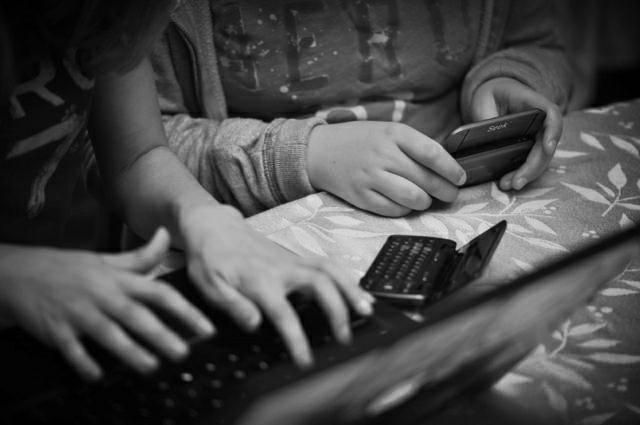I remember my dad asking what kind of job I could get with a bachelor’s and a master’s degree in sociology. I listed off a variety of possibilities, none of which I really understood much about. Fortunately for me, the professor I was assisting undertook a community-based project asking local nonprofits how the university could best support them. The top item was technology, particularly providing technology access and training. This was 1995.
Our work with the local nonprofits resulted in the creation of the Coalition to Access Technology and Networking in Toledo (CATNet). I helped set up labs, coordinated resource sharing among community technology centers, and promoted their services. We referred to our work as “bridging the digital divide.”
My career since then has been dedicated to supporting people and organizations on the ground providing technology access and guiding digital learning. And it is my time initially spent in those Toledo computer labs that has most influenced my dedication to digital inclusion.
When Hurricane Katrina hit in 2005, I was the Executive Director of the Ohio Community Computing Network. I fought insistently to set up a computer lab at Rickenbacker Air National Guard Base where Hurricane Katrina survivors in Ohio were being housed. (Yes, it seemed just as ridiculous then as it does now that we had to fight to provide these folks with access to the internet.) In a matter of days, we had a fully functional, staffed computer lab ready for them.
Just as technology is always changing, how we use technology is always changing.
In 1995, we were concerned about folks knowing how to use a computer and word processing software. The internet was a luxury rather than the necessity that it is today. We would even publicize the number of computers per lab that were connected to the internet!
In 2015, I launched the National Digital Inclusion Alliance to offer support and community to those on the ground providing digital inclusion services. The COVID-19 pandemic showed that even in the 2020s, getting a connection to the internet and device is still not a given, though today we know that the internet is a necessity — for education, work, civic participation, recreation, socializing, family connections, transportation, and everything else. This issue finally got the attention it deserves!
Serving as Executive Director of NDIA is the perfect role for me after all these years of working on technology access and training. I’m so proud that we have successfully advocated for billions of federal dollars for digital equity - in the Digital Equity Act, passed in 2021. We have gathered together 1,000+ of practitioners in a growing community, which has become a movement!
We have a lot to be proud of, but there are also no quick fixes. Together, we’re making it happen, and I’m so proud to be one of the people representing and advocating for the work on the ground that is affecting millions of Americans.
Angela’s family in October 2015.
Angela with the growing NDIA team in summer 2022. Because of the unique talents and spirit of her team, Angela calls them “unicorns.”
Angela has testified before Congress many times. She is pictured here testifying before a Senate committee in 2022, representing more than 1,000 NDIA affiliate organizations.



